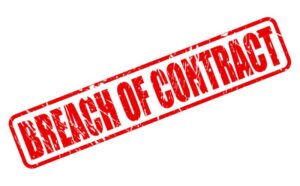Equitable Remedies For Breach Of Contract
- Nov, 23, 2021
- A M
- Business Attorneys
Equitable Remedies Do Not Include One Of The Following:
Equitable Remedy
Contracts can be viewed as tools that businesses use to avoid disputes. That is why contracts are often binding and legally enforceable. But that does not mean that a party or parties that are bound by a contract do not sometimes breach them. Breaching a contract simply means that a party has violated the terms of a contract or has failed to perform a promise as defined in the contract.
This breaching party could be a vendor, a third party, or a partner. In a situation where a breach of contract has occurred, the wronged party can claim to “be made whole” or to be compensated monetarily in the form of damages. Get in touch with a business law lawyer to learn more about a equitable remedies for breach of contract.
Types Of Contract Breaches
Equitable Contract
The types of contract breaches include:
- A material misrepresentation of facts is a type of breach that involves a party signing a contract on the basis of misleading information.
- Signing a contract under duress is a contract breach involving a party being blackmailed or threatened to sign a contract
- Another type of breach is when a party does not fulfill their contractual obligations because of circumstances that make it impossible to perform those obligations
The statute of limitations for filing contract breach claims is usually 4 years but the terms of a contract can reduce it to two years. Any case brought before a court after the statute of limitation expires is considered invalid and the court will dismiss it.
Remedies For Breach Of Contract In Texas
Examples Of Equitable Remedies
 Contract disputes happen when a partner bound by a contract breaches that contract. Remedies for such situations include rescission, specific performance, reformation, and injunction.
Contract disputes happen when a partner bound by a contract breaches that contract. Remedies for such situations include rescission, specific performance, reformation, and injunction.
- Rescission involves the parties agreeing to void the contract and returning all the parties to the position they were in before they signed the contract. That means money that was exchanged is returned and all the terms of the contracts are removed. Rescission is not possible if one party has already performed and completed their contractual obligations.
- A court may also compel the breaching party to do everything they promised. This only happens if the court can oversee compliance with the order.
- An injunction is when a court restricts certain actions by a party involved in a contract dispute in order to maintain the status quo.
- A reformation is when both parties agree to tweak the contract after one of them breaches the contract. This may happen in a situation where there was a misunderstanding or some information was not disclosed when the original contract was signed.
Elements That A Plaintiff Must Prove
What Is An Equitable Remedy
Lawsuits are often seen as a last resort for wronged parties because lawsuits are often expensive and may not always result in favorable rulings. So, the disputing parties may have mediation and then arbitration to try and resolve their issues and reach a compromise. But if all fails, litigation is inevitable.
For a successful lawsuit, the plaintiff must prove the following elements:
- A valid written or oral contract must exist
- The plaintiff must have fulfilled their contract obligations
- The defendant must have not met their contract obligations
- The plaintiff must have suffered monetary damages





